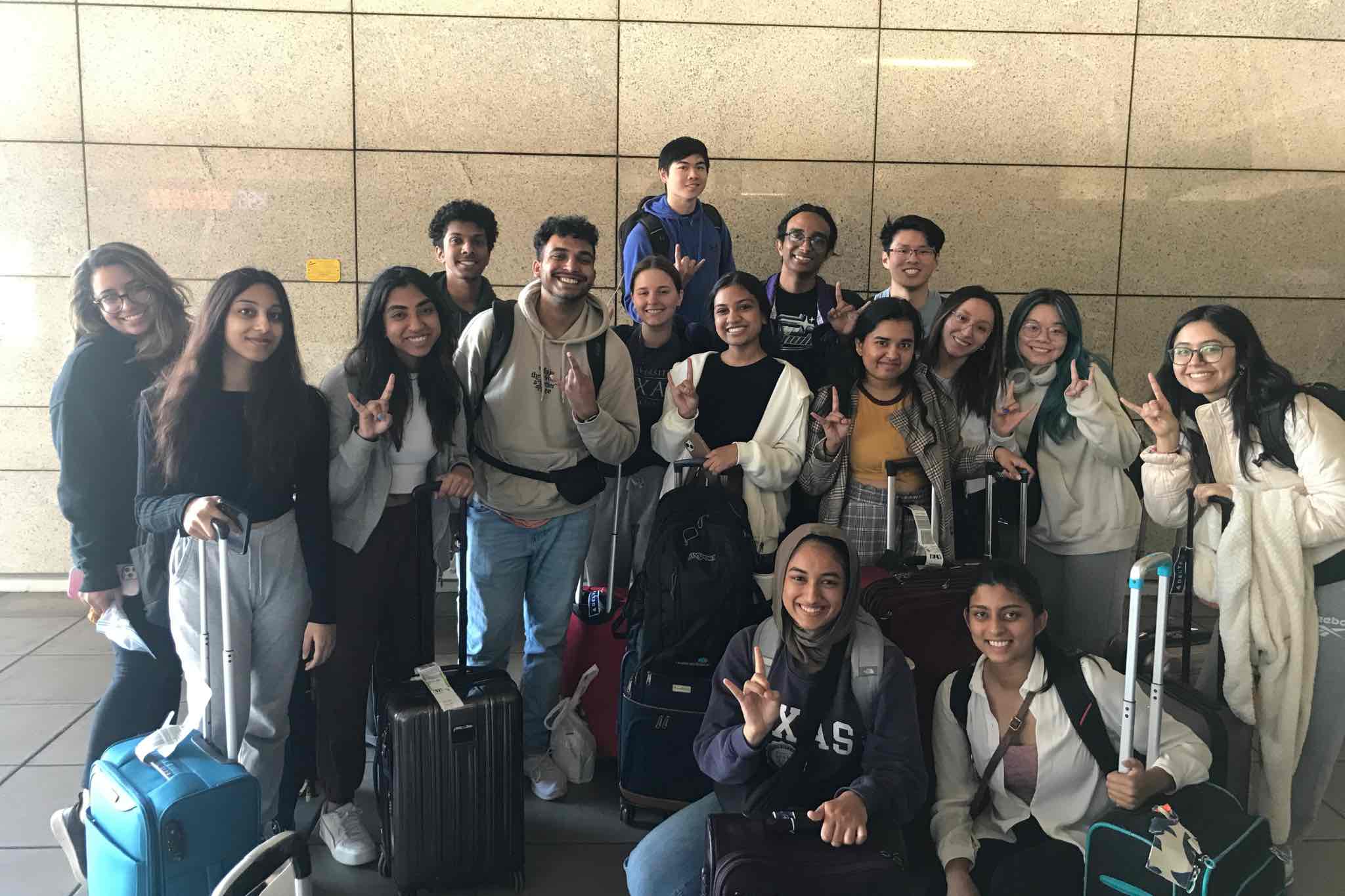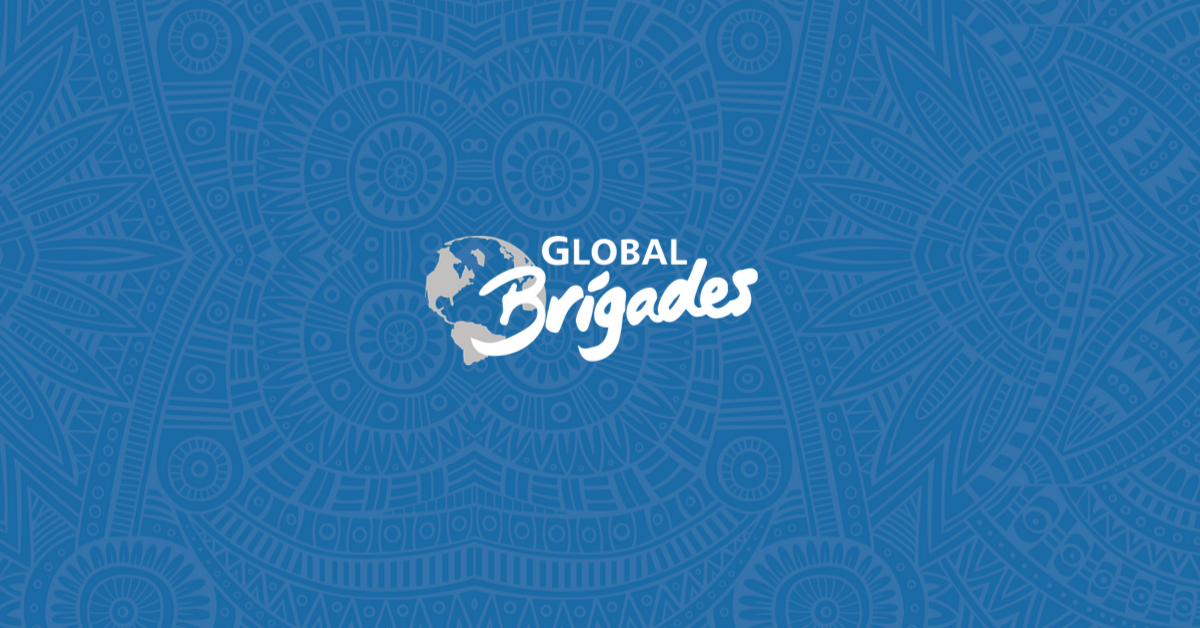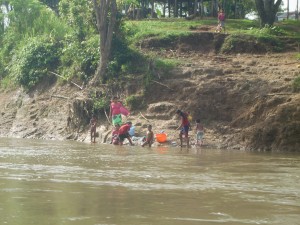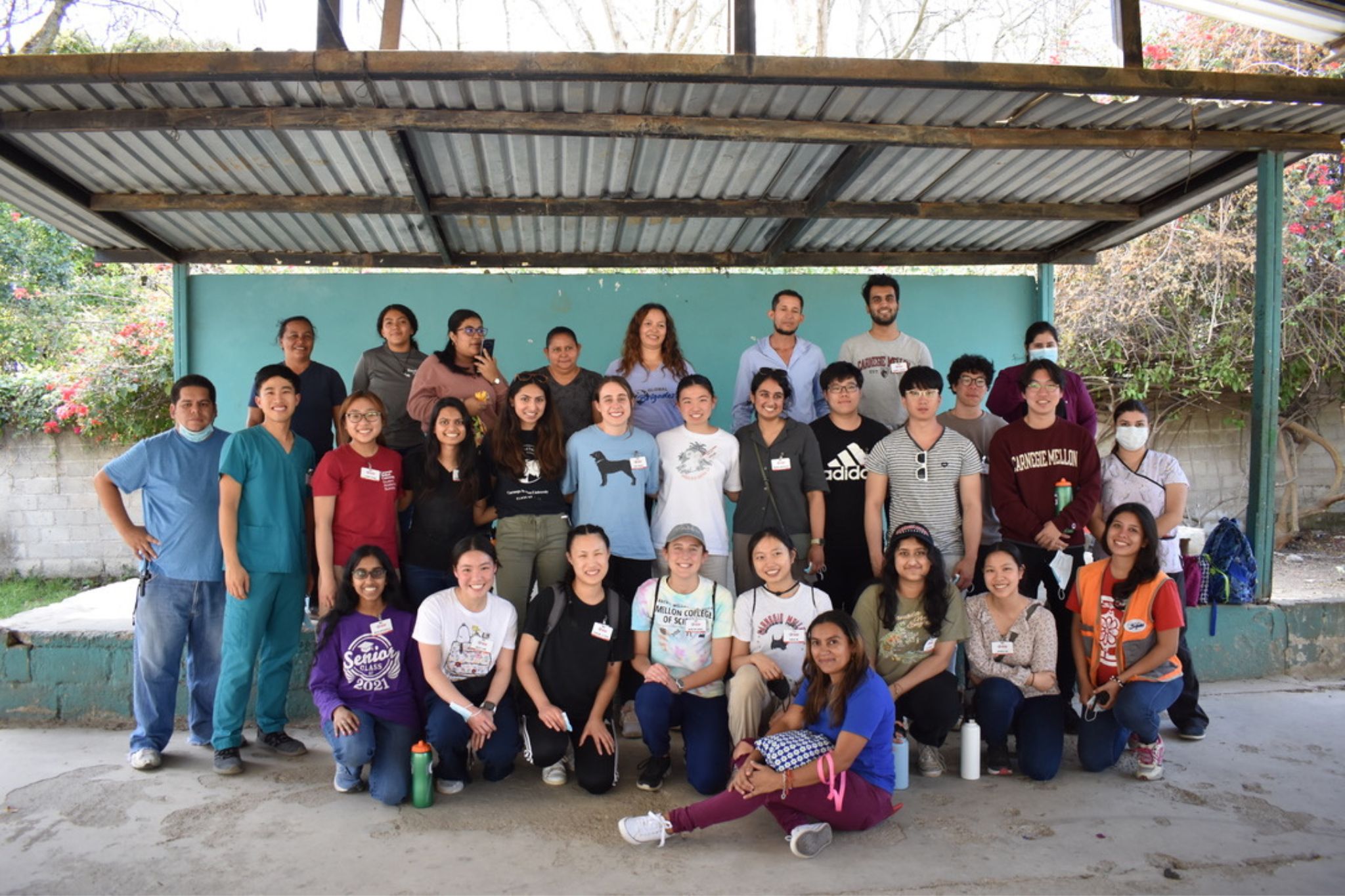Thinking about your first international volunteering experience is exciting, but it can also be overwhelming. Planning thoroughly and leaning on support from your volunteer organization can help ensure a safe, rewarding experience.
Collectively, Global Brigades has partnered with over 90,000 volunteers for international collaboration over 20 years, so we have quite a bit of experience helping volunteers get ready! Our detailed guide on how to prepare for your first international volunteering trip is a great first step in understanding the logistics involved, starting with what to bring along with you.
Packing + Paperwork
Volunteer organizations and nonprofits typically offer a packing list that includes tips on visas and passport requirements. However, it’s still up to you to make sure you have everything you need for a safe, comfortable experience.
Volunteers at Global Medical Brigades choose us because of our track record of having sustainable, rewarding experiences within our partner communities. That’s why we’re the largest student-led movement for global health.
What Should I Pack for My First International Volunteering Trip?
Here is what we recommend volunteers pack for Brigades:
- Travel paperwork (see our list in the next question)
- Appropriate clothing (T-shirts, long-sleeved shirts, long pants, or scrub pants for volunteer work. Shorts, leggings, and tank tops are only suitable at the lodging facility.)
- Appropriate footwear (Bring closed-toe sneakers or boots for community development work. Sandals or flip-flops are only suitable for the lodging facility.)
- Hat and sunglasses
- Light rain jacket
- Sunscreen
- Small daypack
- Toiletries
- Prescription medication in original bottles/refill information
- Insect repellent (We like mosquito bracelets and organic bug sprays or topical creams. Aerosols are only allowed in checked luggage. All liquid items taken in carry-on luggage may be in containers of 3.5 ounces or smaller.)
- Travel adapters
- Water bottle (Bring your own stainless steel or food-grade hard plastic bottle to refill with the safe drinking water we provide — this also helps to reduce waste.)
- Plastic bags to keep valuables dry
- Preferred snacks and downtime activities
As you pack, remember that you’re representing the organization you’re volunteering for. Dress for comfort but in a manner that respects partner communities.
It’s also important to pack light to meet airline baggage requirements and make it easier for you upon arrival. Leave expensive jewelry, unnecessary electronics, and formal clothing at home.
What Paperwork Should I Be Prepared to Have for Flying to a Foreign Country?
Before your volunteer trip, you should have the following documents:
- Passport (valid for at least 6 months beyond your return date)
- Paper copies of your passport information page
- Visas (if needed)
- Travel itinerary (flight information, accommodations, ground transport, etc.)
- Health documents (vaccination certificates as needed)
- Travel insurance policy
- Emergency contact information
How Early Should I Apply for a Passport?
First-time volunteers without a passport should start the process 3 to 4 months before their Brigade. Passport processing times vary throughout the year. Give renewals just as much time. All passports should be valid for at least 6 months after the last day of your intended Brigade dates.
How Early Should I Apply for a Visa?
Start any necessary visa processes 3 to 4 months before your intended Brigade. We can provide guidance on relevant visas for each destination country, but it’s up to the volunteer to gather the proper documentation for their brigade.
Is There Anything I Need to Know About Finances for Traveling?
The cost of international volunteering varies by organization. At Global Medical Brigades, all volunteers must meet a donation goal before travel. Upon arrival in partner communities, we cover ground transport, food, lodging, and emergency insurance.
We recommend bringing small bills as spending money for souveneirs. USD currency is accepted in partner communities and travel locations for all of our Brigades.
Health + Safety
Staying healthy is an important piece of volunteer travel. You want to feel good both physically and mentally for the best volunteer experience. We’ll cover the basics here, but your volunteer coordinator will be a great resource for unique questions about health and safety.
Should I Get Travel Insurance?
All our volunteers are automatically enrolled in a travel policy from Core Travel Insurance to cover health-related emergencies. You may want to purchase additional insurance to add a layer of financial protection in the case of lost belongings or travel disruptions.
Are Any Vaccinations Required?
Vaccination requirements vary by country. Some may require vaccines for entry, while others have a recommended vaccination list to cover possible health concerns.
We offer guidance on vaccine requirements well before travel, but the Centers for Disease Control and Prevention (CDC) is a good starting point if you’re in the research phase.
We recommend that all volunteers be up-to-date with routine vaccinations, such as chickenpox, diphtheria-tetanus-pertussis, flu, measles-mumps-rubella (MMR), polio, and shingles. Talk to your doctor about any additional precautions you may need to take based on your health needs.
What Are the Best Practices for Staying Safe and Healthy During My Trip?
For a safe and healthy volunteer trip, research potential health risks, get the necessary vaccinations, and try to follow healthy practices. On Brigades, you’ll be provided with healthy food options, but adequate rest and hydration are also important.
Our Brigaders have the benefit of working with one of the safest volunteer organizations in the world, and one way we keep volunteers safe is through comprehensive emergency response plans. This includes everything from contingencies for mental health crises to natural disasters (and much in between).
How Do I Stay Mentally Healthy While Traveling?
Stay connected with loved ones at home, lean on other volunteers and nonprofit coordinators, and speak out when you need help to support your mental health while traveling.
If you have any existing mental health concerns, it’s important to understand your triggers. Talk with your healthcare provider about coping strategies and medication management if you’re on a current regimen.
We can provide additional information on mental health support available to volunteers before, during, and after brigades if you need it. We want all of our volunteers to have a safe, beneficial experience.
Social Aspects
Before your volunteer experience, most organizations offer extensive prep specific to your destination. If you’re in the planning phase, it may help to have some of that information as you explore which placement is best for you.
Should I Do Any Personal Research on the Location of My Trip Before Going?
You should always do your own research before any international experience, whether that’s a volunteer trip to Kenya or leisure travel to Thailand.
Before each Brigade, we prep our volunteers with extensive cultural preparation information In the months before your trip, supplement that by learning about your intended destination’s history, politics, language, and customs.
You can also reach out to past volunteers or check out our social channels for tips specific to that organization or destination.
Do I Need to Speak the Language at My Destination?
You don’t need to speak the language at a destination, but learning some common words or phrases can help you connect with that community. If you’re teaching English abroad, knowing as much of the primary language as possible is certainly helpful.
Are There Faux Pas I Should Avoid, Such as Taking Pictures to Post Online?
Best practices for social media use when volunteering vary by organization, but generally, it’s important to consider a nonprofit’s mission and values before posting things online. Regarding privacy concerns, always ask for consent before posting a photo or video of anyone from your experience.
Consider your intentions, too. Avoid posting content that might appear like attention-seeking or white saviorism where you’re the hero of the story. Avoid generalizations and stereotypes.
What Are the Right Ways to Use Empowering Language?
Empowering language is centered around partner communities. It’s not self-serving and doesn’t paint communities as “other.” That starts with avoiding words like “foreigner” or “third world” when talking about communities.
“Local” isn’t the most egregious, especially if you’re referring to learning the local language, but it can be another word that reinforces separation.
Rather than talking about the local culture, local community, or local people, be specific with country names. Emphasize the partnership aspects of volunteerism. You’re not there to serve or save but to support sustainable change.
How Do I Deal with Culture Shock?
Doing your research about customs and social norms before spending time in a new country helps relieve some of the stress and anxiety of international travel. We do quite a bit of volunteer prep work in this area, but some culture shock is normal.
A little discomfort here is healthy. Go into your experience with an open mind to learn about a new culture. Lean on other volunteers. Think about the positive impact of your volunteer project rather than how different things are at your volunteer site.
Is International Volunteering Worth It?
International volunteering can be more rewarding than many internships. We want you to keep in mind the primary goal of a volunteer organization isn’t to offer an exciting gap year or study abroad alternative or to pad your resume with exciting extracurriculars. It’s to empower communities and create sustainable change.
What Do People Look For When Choosing a Volunteer Program Abroad?
When choosing between international volunteer opportunities, consider the program’s impact on partner communities and whether it offers sustainable change rather than temporary fixes to complicated problems.
From there, cost, transparency, potential for language learning, and whether the program matches your educational or career goals can all factor into your decision. Opportunities for personal growth, including enhancing your skills or gaining new ones, also matter.
Choosing the Right International Volunteering Program
We wouldn’t be able to do the work we do at Global Medical Brigades without the support of our volunteers. It’s important that you feel comfortable in your decision to work with us, especially if it’s your first volunteering trip.
If you have any additional questions about the work we do and where you fit in, don’t hesitate to reach out.
Ready to learn more? Join a Medical Brigade to help us make a tangible, long-lasting impact in our partner communities.






